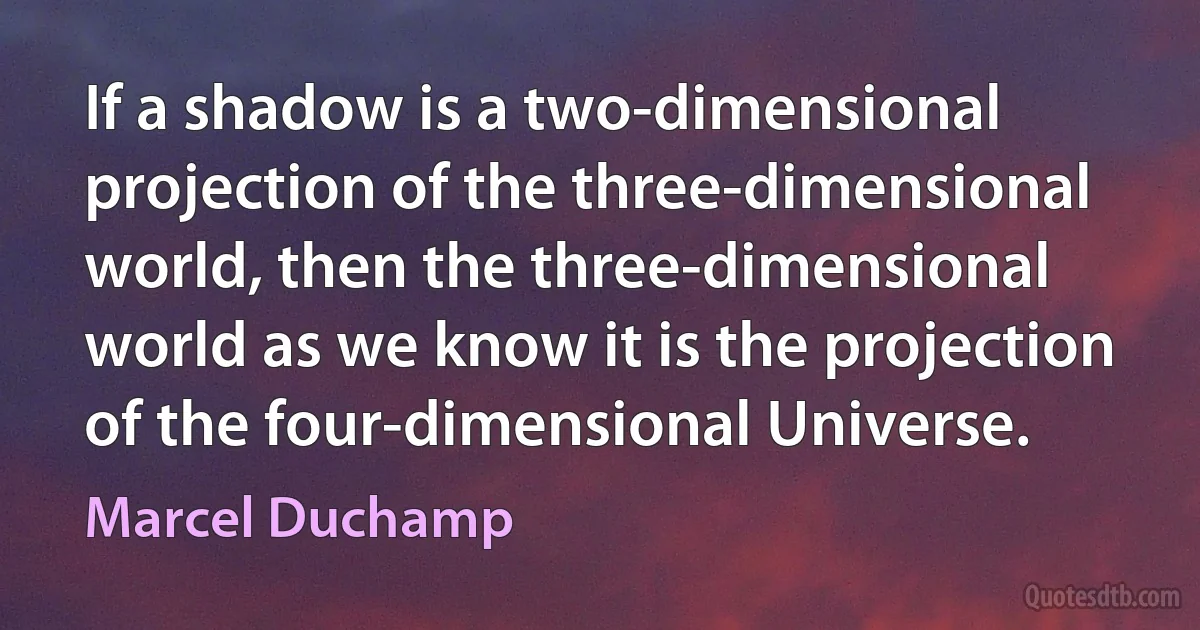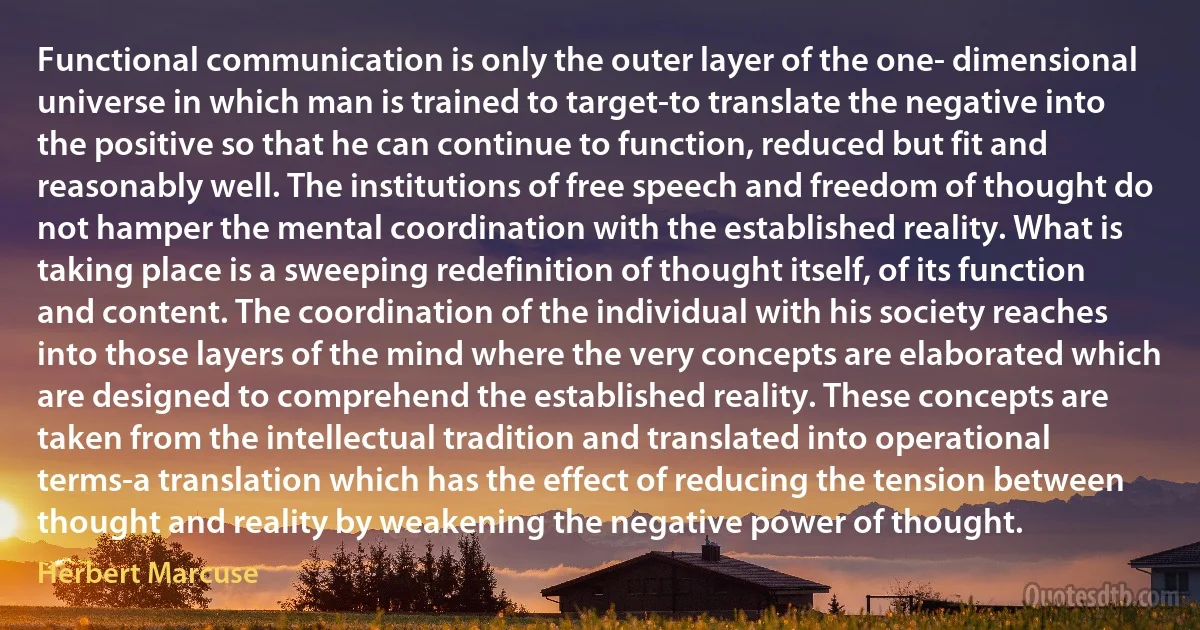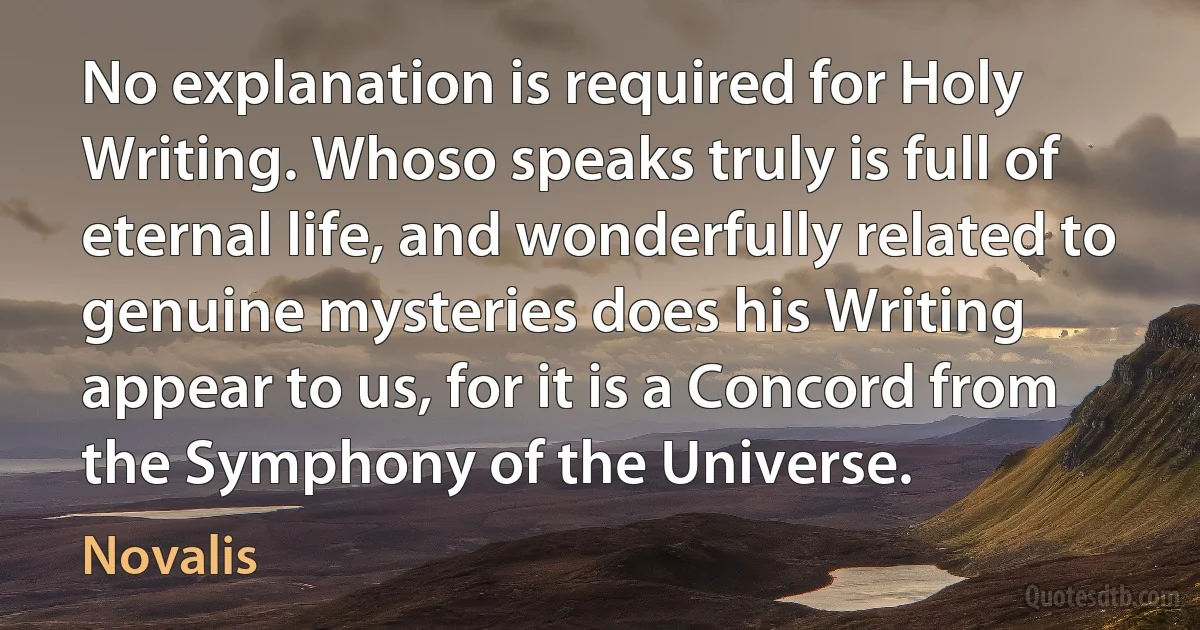Universe Quotes - page 77
They also say that God is an animal immortal, rational, perfect, and intellectual in his happiness, unsusceptible of any kind of evil, having a foreknowledge of the universe and of all that is in the universe; however, that he has not the figure of a man; and that he is the creator of the universe, and as it were the Father of all things in common, and that a portion of him pervades everything.

Diogenes Laërtius
The philosopher considering the Universe in its entirety is led to admit that there is only one necessary, absolute being, God. All other beings are contingent; this is why Pascal said of himself: "I feel that I might not have been... therefore I am not a necessary being" (Pensées, No. 597). The proposition applies equally to every living thing.

Pierre-Paul Grassé
Here we are, up to our ears in transcendence: Any organization or function is controlled by it. The building blocks for making living creatures are utilized by it. Thus, the entire world of living beings is transcended by phenomena that create finality. Natural selection working for the continuance and welfare of animals, plants, and man himself, is seen to be the grand law which organizes the living universe. So the Darwinians, who fancied they had exorcized finalism and transcendency but forgot to analyze critically the idea of natural selection, failed to see its implications or metaphysical consequences. They thought they were absolved from giving any finalization or deistic interpretation by decreeing that on earth all is but deceptive appearances; finality is a sham, guided evolution illusory. How is it possible to understand such an attitude?

Pierre-Paul Grassé
A whole dimension of human activity and passivity has been de-eroticized. The environment from which the individual could obtain pleasure-which he could cathect as gratifying almost as an extended zone of the body-has been rigidly reduced. Consequently, the "universe” of libidinous cathexis is likewise reduced. The effect is a localization and contraction of libido, the reduction of erotic to sexual experience and satisfaction.

Herbert Marcuse
Paul Valéry insists on the inescapable commitment of the poetic language to the negation. The verses of this language "ne parlent jamais que de choses absentes.” They speak of that which, though absent, haunts the established universe of discourse and behavior as its most tabooed possibility-neither heaven nor hell, neither good nor evil but simply "le bonheur.”.

Herbert Marcuse
In the Platonic dialectic, ... the terms "Being” "Non-being” "Movement,” "the One and the Many” "Identity” and "Contradiction” are methodically kept open, ambiguous, not fully defined. They have an open horizon, an entire universe of meaning which is gradually structured in the process of communication itself, but which is never closed. The propositions are submitted, developed, and tested in a dialogue, in which the partner is led to question the normally unquestioned universe of experience and speech, and to enter a new dimension of discourse - otherwise he is free and the discourse is addressed to his freedom. He is supposed to go beyond that which is given to him - as the speaker, in his proposition, goes beyond the initial setting of the terms. These terms have many meanings because the conditions to which they refer have many sides, implications, and effects which cannot be insulated and stabilized.

Herbert Marcuse
Thought is led, by the situation of its objects, to measure their truth in terms of another logic, another universe of discourse. And this logic projects another mode of existence: the realization of the truth in the words and deeds of man. And inasmuch as this project involves man as societal animal,” the polis, the movement of thought has a political content. Thus, the Socratic discourse is political discourse inasmuch as it contradicts the established political institutions. The search for the correct definition, for the "concept” of virtue, justice, piety, and knowledge becomes a subversive undertaking, for the concept intends a new polis.

Herbert Marcuse
If the State, modeled after the universe, is split into two spheres or classes of beings – wherein the free represent the ideas and the unfree the concrete and sensate things – then the ultimate and uppermost order remains unrealized by both. By using sensate things as tools or organs, the ideas obtain a direct relationship to the apparitions and enter into them as souls. God, however, as identity of the highest order, remains above all reality and eternally has merely an indirect relationship. If then in the higher moral order the State represents a second nature, then the divine can never have anything other than an indirect relationship to it, never can it bear any real relationship to it, and religion, if it seeks to preserve itself in unscathed pure ideality, can therefore never exist – even in the most perfect State – other than esoterically in the form of mystery cults.

Friedrich Schelling
String theory has the potential to show that all of the wondrous happenings in the universe - from the frantic dance of subatomic quarks to the stately waltz of orbiting binary stars; from the primordial fireball of the big bang to the majestic swirl of heavenly galaxies - are reflections of one, grand physical principle, one master equation.

Brian Greene



